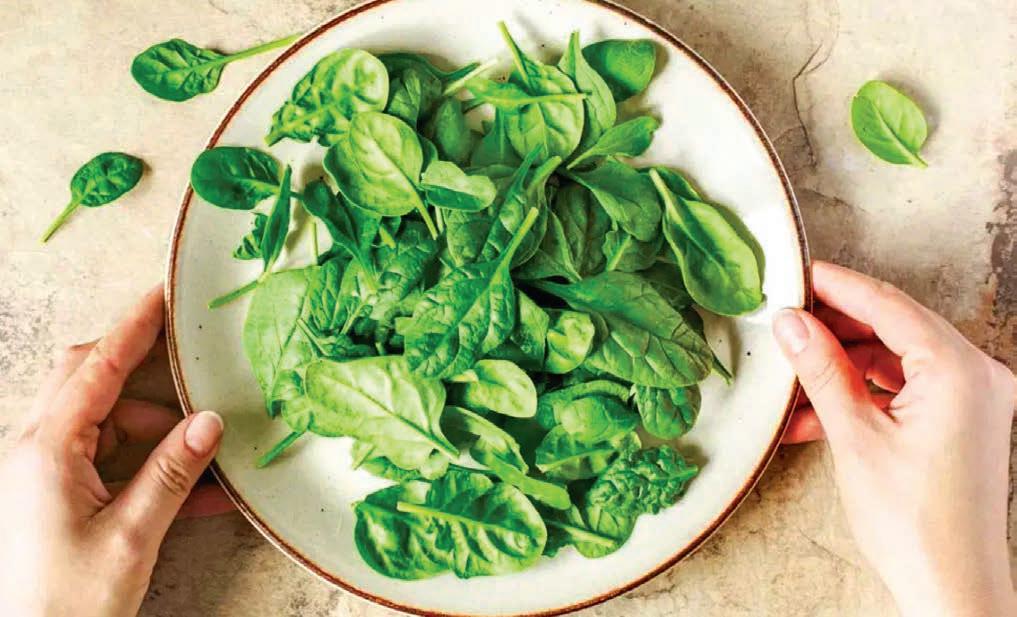
3 minute read
Health & Science

How mams and dads shape their child’s ‘emotional eating’
Advertisement

NEW research reported by Frontiers In Psychology digs into the interplay between the way parents feed their children and what psychologist term ‘emotional eating’ by parents and children, as well as the in uence the parent’s gender has on that association.
Most people are familiar with using food as a way to get through a trying time. Known as emotional eating, for some it can be a perfectly appropriate strategy for managing bad feelings, but for others it also can become a problematic way to cope.
e goal of the new research was to better understand how child emotional eating develops and prevent from becoming unhealthy.
According to Futurity News, the study surveye parents and asked how often they and their child engaged in emotional eating. e researchers then explored what roles three di erent feeding practices parents typically use with their children might play. ose include limiting a child’s food intake, or restrictive eating; using food to help change a child’s emotions, known as emotion regulation; and using food to punish or reward child behaviour, called instrumental feeding.
“We were really interested in comparing di erent ways that parents feed their children and whether those feeding practices accounted for some of the link between parent and child emotional eating,” said Shaina Trevino, a graduate student in the College of Education at the University of Oregon who was the lead author of the study. ey discovered that, overall, restrictive eating was the only feeding practice that linked parent and child emotional eating.
“We actually found that restriction accounted for the relationship of parent-child emotional eating above and beyond those other factors,” Trevino says. “ at was just unexpected.”
And when it came to mothers, restricting their children’s food intake and a mother’s own emotional eating were the key factors in uencing kids’ tendency to eat emotionally.
For fathers, however, all three types of eating practices were found to play a role in emotional eating for their children.
“What that means is that feeding for behavioural reasons, feeding for emotion regulation reasons, and then the restrictions, those all accounted for the emotional eating relation,” Trevino says. “ ere was no longer an association between a father’s emotional eating and a child’s emotional eating that was not accounted for by how fathers feed their children.” is study, which surveyed 324 mothers and 86 fathers, is more of an early exploratory look at the issue because of the lack of participation by fathers.
“ e main takeaway of the study is that emotional eating and feeding practices are operating di erently for both mothers and fathers, and that really should in uence the research in this area,” Trevino said.
Eating spinach could prevent colon cancer
IN the Western world, colon cancer is the fourth-most common cancer and secondleading cause of cancer-related deaths. Previous studies have shown that eating green vegetables and bre reduces risk of colon cancer by as much as half.
According to the website Futurity News, a new study in the journal Gut Microbes explores the relationship between spinach, gut health, genes, and colon cancer outcomes. e researchers at Texas A&M University used a model of a hereditary disease called familial adenomatous polyposis, an inherited disorder that causes young people to develop multiple noncancerous growths (polyps) in their colon.
Most people with this disease must have their colon surgically removed to prevent hundreds of tumours from growing in their colon as they age. e new study’s ndings indicate spinach might aid in cancer prevention in these patients by delaying the need for colon removal and prolonged drug treatment.
After feeding freeze-dried spinach to an animal model of familial adenomatous polyposis for 26 weeks, the researchers observed signi cant anti tumour activity in the colon and small intestine. ey found that the tumour suppression from spinach involved increased diversity in the gut microbiome (helpful microbes) and changes in gene expression to help prevent cancer. e researchers also found that fatty acids associated with regulation of in ammation, called linoleate metabolites, were brought up to a bene cial level after a spinach diet.
Hereditary forms of colon cancer only account for about 10 to 15% of cases. e majority of colon cancers are sporadic, meaning they are not driven by a genetic predisposition inherited through a family.







